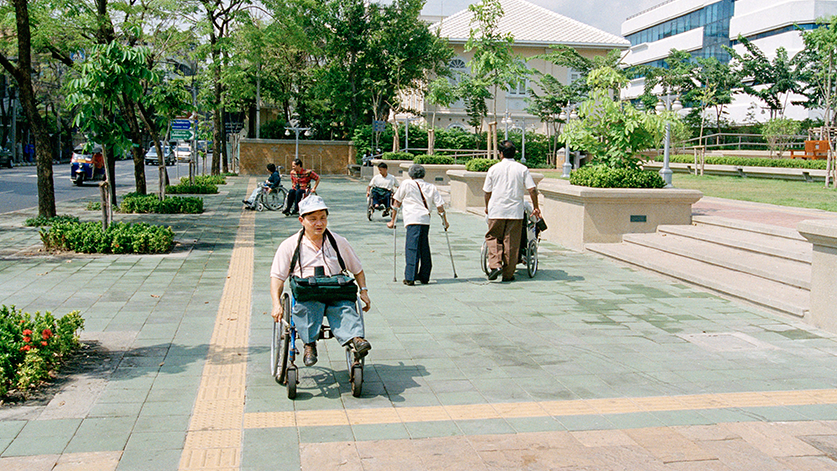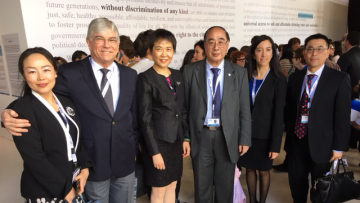
Habitat III: Promoting accessible and inclusive cities for all
“The 2030 Agenda for Sustainable Development highlights the importance of the inclusion of disability in urban development,” UN DESA’s Under-Secretary-General Wu Hongbo said as he addressed the opening of the High Level Forum on Disability Inclusion and Accessible Urban Development, which took place on the eve of the UN Conference on Housing and Sustainable Human Settlements (Habitat III) in Quito, Ecuador, on 16 October.
Bringing together more than 100 global urban planning and disability experts, the event honed in on finding solutions to make urban development inclusive of and accessible to the world’s one billion persons with disabilities, many of whom live in cities.
Aimed at supporting States and related stakeholders in jointly advancing accessible and inclusive urban development, the event resulted in a set of key recommendations to build inclusive and accessible cities and implement the New Urban Agenda for all, including persons with disabilities.
 “The achievement of a truly inclusive urban development requires a holistic and people-centered approach”, said Mr. Wu. “We must involve and engage persons with disabilities as both agents and beneficiaries of development. This is essential for the collective good in urban development.”
“The achievement of a truly inclusive urban development requires a holistic and people-centered approach”, said Mr. Wu. “We must involve and engage persons with disabilities as both agents and beneficiaries of development. This is essential for the collective good in urban development.”
Currently, for the world’s one billion persons living with disabilities, most cities and towns present significant barriers to inclusion and participation, ranging from inaccessible infrastructures, to lack of user-sensitive designed facilities or limited access to basic public services.
Inclusion and accessibility are preconditions to guarantee the development of fully integrated and sustainable cities in the framework of the new urban agenda.
Prior to the High Level Forum, organized by UN DESA and the Ministry of Housing and Urban Development, Government of Ecuador, UN DESA released a new publication titled “Good Practices of Accessible Urban Development” to illustrate and encourage more initiatives and concrete actions from both developing and developed countries in advancing urban development to be accessible and inclusive to all, including persons with disabilities and other special needs.
Highlighting key experiences and lessons learned from 24 case studies, the publication contributes to the ongoing discourse around accessible urban development in light of Habitat III and the “New Urban Agenda”. It also provides specific recommendations to advance inclusive urban development for all.

Follow Us